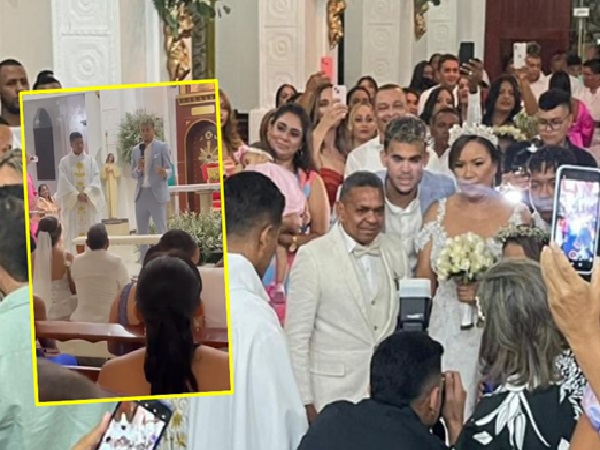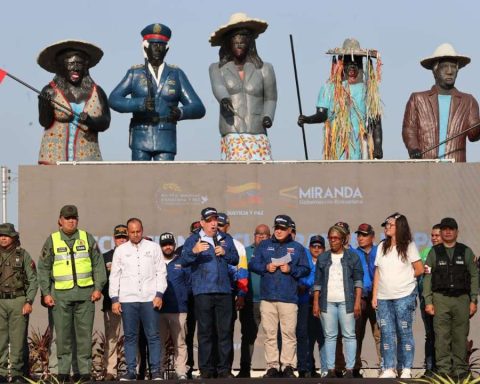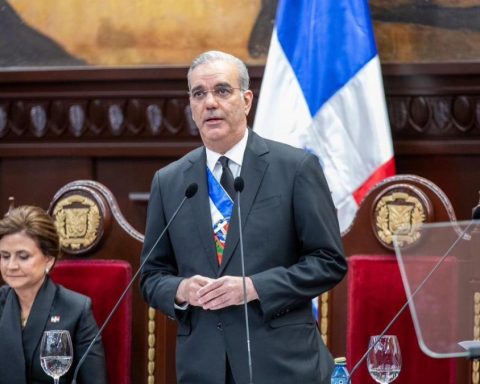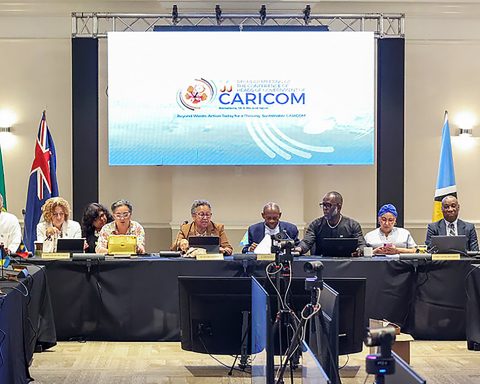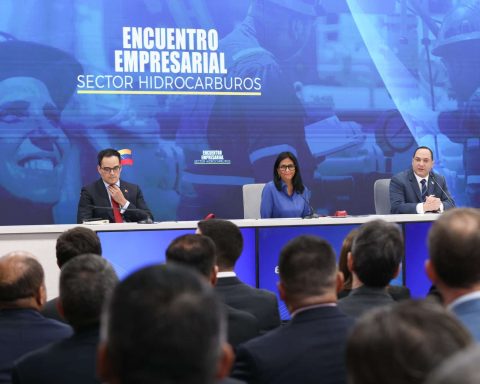Camila Zárate from Pueblo Constituente and who was coordinator of the Environment Commission and is now a member of the Transitory Norms Commission, was the last conventionalist to intervene in the three-hour debate that preceded the vote on Thursday of the first report of transitory norms voted by the full.
“Why is the current Congress going to have the power to amend the Constitution? Why was it imposed on this Constitutional Convention to make decisions on the norms with 2/3 and the same rules cannot be imposed on the National Congress?”, he said.
That day the transitory provision that established the end of the Senate in 2026 was rejected, it also returned to the commission the quorum that was sought to apply to the current Congress for constitutional reforms, of 2/3.
The key groups for the rejection of the rule that set the next presidential and parliamentary elections in 2025, and established that all senators would finish their term in 2026, including the 27 who were elected in 2021, were the Constituent People, the Plurinational Coordinator and Constituent Social Movements, in addition to the center-right.
“We are now in a different position than when we were in the permanent regulations, because we are no longer simply talking about how we want the country, now we are directly talking about how the current powers of the State are in charge of this implementation,” said Camila Zárate While the groups of the center-left have been working since Friday to present instructions together, the deadline is Monday at 11:59 p.m.
Regarding the transitory norm that seeks to establish how the current Congress will be able to reform the Constitution, he said that they will seek to implement the constitutional reform norm of the draft to the current Congress, which dictates that for changes in some norms on topics that substantially alter the political regime, the design of the legislative bodies, the form of the Regional State, the fundamental principles and rights and the reform chapter of the Constitution, require a citizen referendum or the agreement of 2/3 of the legislative bodies.
In addition, he explained that from the Constituent People they are promoting a transitory provision that establishes that for constitutional reforms by the current Congress, some issues are added to the group that would need a referendum or 2/3 agreement, such as articles referring to natural common goods.
In your opinion, what are the risks of not reaching a consensus regarding the norm that establishes the transition from the current Congress to the new two legislative bodies and that the elaboration of the transition remains in the hands of Congress?
-This is not life or death in the sense that if there is no temporary rule on this issue, there is no way to make the transition. The Congress itself is going to want to protect its mandate until the end, and I believe that there is also going to be an important role that the Executive could play, in case of calling for elections.
-With the rejection of most of the articles presented in the first report of Transitory Norms, how have the conversations been restarted within the center-left for the presentation of indications that expire this Monday?
-We are now in a different position than when we were in the permanent regulations, because we are no longer simply talking about how we want the country, now we are directly talking about how the current powers of the State are in charge of this implementation. And that is where those who have seats in Congress come into play, as well as those who are part of the Government. For this reason, in this part of the conversation the polarization between the independents and those who directly or indirectly form part of the constituted power is much greater, much more tense.
-What specific problems do you find in the paragraph that established the transition from Congress to the new legislative bodies and that set the term of the senators’ mandate for 2026?
-There is an interest in renewing politics, and that should include that the current senators are not the same ones who will later run for the Chamber of Regions, otherwise the substantive change we are achieving is distorted. The regulation as it was in the plenary vote did not make any exceptions.
But, above all, it has to do with the fact that in that regulation it is established that there will be no elections until 2026 in the case of Parliament, but if you see all the political design it means that you have four years in which the current Congress, if it is not established regulations regarding constitutional reforms, and in turn you maintain the current law in force, basically you are freezing the Constitution for four or five years, and in turn you are also allowing its complete reformulation. That is why it is important for us that when one of these articles is approved, it is approved as a whole.
We have no problem establishing certain progressivity criteria as long as there is a sense of urgency, but that the article has a complete design and this is not cut off.
-What is the meaning for the Constituent People that the current Congress has a quorum of 2/3 for constitutional reforms when they have not agreed with this quorum within the Constituent Convention?
-The opposition to the 2/3 within the Constitutional Convention had to do with the difficulty that existed in order to achieve deeper transformations due to the more moderate sectors of the Convention.
It seems to us that the current Congress, which was elected with the intention of being able to set the Constitution in motion, to create laws, was not elected to reformulate the Constitution, and for this reason it does not seem to us that it is the one that should reformulate it, even more so a Constitution which has not even started to be implemented.
This goes hand in hand with political design in general. Because until now we have been asked, unlike many other countries that call for immediate elections, in this case we have been asked to wait four years. So we are going to have four years of a Congress for which we do not establish a specific quorum by which it can reformulate the Constitution, and it could do so by simple majority.
-The current draft establishes that in matters of political regime, design of legislative bodies, form of Regional State, fundamental principles and rights, among others, for constitutional reform a citizen referendum must be held or the support of 2/3 must be obtained. Would they make a transitory norm on constitutional reform for the current Congress?
-Our idea is a formulation that says that certain matters are protected by referendum or quorum of 2/3. We believe that the ideal would be that any constitutional reform by the current Congress, we will see if it is possible.
Because what about these sections that are ultimately not protected because they are not part of the chapter on fundamental rights or principles, but for business, for example, it would be ideal to return to animals instead of being subject to special protection become movable property again, for the same reason we have to be able to see a formulation that protects those claims, or at least allows them to be implemented.
It seems to us that the way to protect those articles that are not found in the “Fundamental Rights” and “Principles” chapters, such as, for example, natural common goods, animals, environmental principles, among other matters, is through the establishment of a transitory norm, which governs for the current Congress, where a plebiscite is set to change these matters.
-What key article for you are not part of the issues that need a referendum or 2/3?
-It could be that by a simple majority the regulation of the new Constitution on the inappropriateness of water is changed, and we go back to this historical demand that we managed to change, to this figure, for example, that there is ownership over the rights of use, which we will now call them authorizations, but it could be that the current Congress says regarding authorizations, it turns out that there is also a private right.
-What are the biggest concerns ahead of the vote?
-The design as it is proposed today is practically putting the Constitution in a freezer. It makes it difficult for us that in four years we will have the same Congress, which does not have representativeness of reserved seats or parity, and at the same time that it will finally be the one that, without having the same rules that we had, that we were elected for these matters, can reformulate the Constitution without even being implemented. That seems more terrible to us than even having to think about them having to use a 2/3 quorum which we don’t like either.
-Marcos Barraza slipped the idea of creating clauses that establish that the bodies that have not yet been implemented cannot be reformed. Would the Constituent People agree with this idea? Have you been part of the talks?
-It is part of our position. We would have to enter into a conversation if that specific approach would have support. As a Constituent People we are open to generating mechanisms that allow this current Congress not to modify the Constitution in order to roll back the great demands that we managed to capture in the draft. And in that sense we are open to see all the formulas that are necessary to achieve that goal.
-Article 2, which you rejected, establishes that the State bodies must adapt their regulations in accordance with the provisions of the new Constitution within a period not exceeding five years from its entry into force. Why did they vote against?
-Article 2 says that nothing is expressly repealed or modified until expressly the legislator for a normative adaptation, or the Constitutional Court so declares. That is the fundamental problem. Freezes the action of the Constitution as a matter of law as a normative body that has legal effects per seto these express derogations or express regulatory changes that we do not know how long they will take.
Would they be about to set another number of years?
-It seems to us that it should be less and we have thought of three years. We independents are not part of the current government or Congress, so we have our legitimate right to distrust the current institutions, because if it weren’t for that distrust we wouldn’t be here. And in that distrust that those of us who come from the movements have, we can think that if there is no political will it could perfectly happen that nothing happens in five years, nothing in the Constitution begins to be self-executing in those five years, because we have to wait for the legislator formulates the laws, waiting for the Constitutional Court to exist and to declare something expressly repealed.
And in turn you have a Congress that could reformulate everything. So the design, at least for those of us who are independent and see this from the outside because we are not part of the institutional framework, the truth is that the risk was very great. And that’s why we couldn’t approve these articles yesterday.













